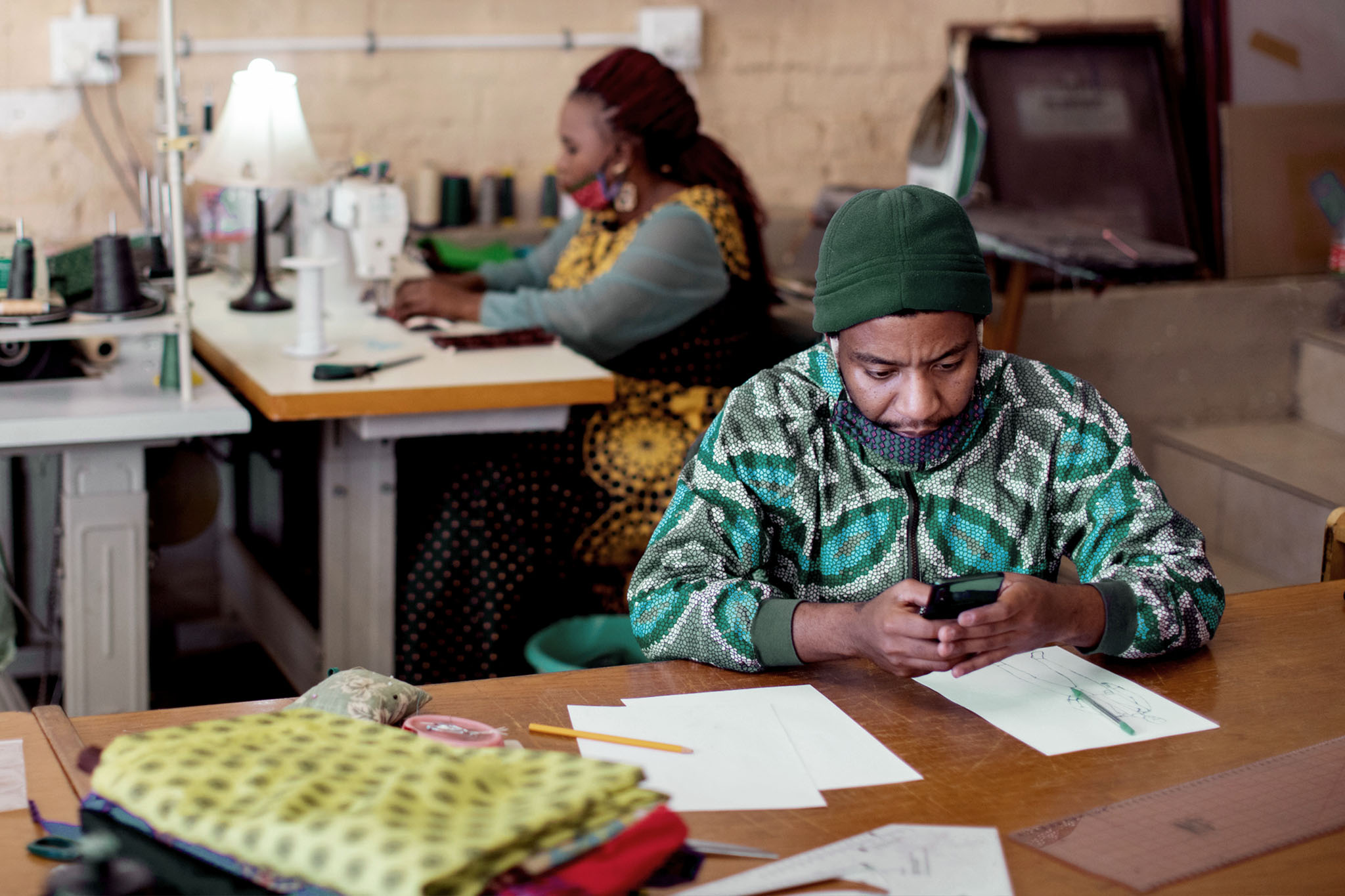The challenges of running a successful retail business are not that different to those in other types of business. Sustainability lies at the heart of making your business work – in more ways than one.
‘Sustainability’ often refers to environmental concerns and the climate crisis, but it isn’t the only type of sustainability that your retail operation needs. A useful definition of business sustainability is ‘a company’s management of environmental, social and financial concerns to ensure responsible, ethical and ongoing success’.
Business sustainability includes ESG goals
Business sustainability initiatives focus mainly on environmental, social and governance (ESG) factors. These pillars of business sustainability can be summarised as follows:
Environmental sustainability
For example, increasing energy efficiency in data centres, reducing energy requirements in production, using digital technology and AI in supply chain logistics to lower your energy consumption, or cutting waste and water usage – these are all ways to reduce the carbon footprint of your business.
Social sustainability
This focuses on being a business your local community will want to support. It can include adopting fair labour practices, not polluting the shared environment and giving back to the local community.
Governance sustainability
Economic sustainability requires regulatory compliance and accounting transparency, so sustainable governance is essential to long-term business profitability.
There are different ways to approach ESG goals. For example, in the fuel and retail sector you can make a significant difference by shifting to more sustainable supply chains using electric vehicles, or by adopting environmentally friendly, low-impact refrigerants. Large retailers around the world, including Nestlé, Unilever and Walmart, are already moving in this direction.
Why sustainability matters – in all its forms
There’s a mistaken belief that if you follow business practices that prioritise the welfare of society and our environment, you inevitably harm the profits and financial growth of your business. It’s an outdated concept – the latest business thinking understands that the depletion of non-renewable natural resources isn’t a sustainable approach, and neither is the environmental harm it causes. As retail business owners in the fuel sector know all too well, the long-term supply of non-renewables is unstable and unpredictable.
And most people now realise that damaging our ecosystem in the name of profit is short-sighted, when we have not even estimated how much it will cost us to repair the damage, or the future threats it could pose to humanity. Running our businesses to cause the least harm to life on earth is not a missed profit opportunity or a cost. It’s an investment in the future.
Technology has enabled a rapid rise not only in e-commerce, but also in alternative delivery models
The challenge is to blend ESG sustainable goals with the time-tested elements of financial sustainability in business – a skilled, engaged workforce, healthy growth, an expanding customer base and a decent return on investment.
The problem facing most businesses is that sustainable alternatives usually require new investments in infrastructure. In South Africa, load-shedding and an unstable power supply present an extra challenge to your business. How can you approach growing your business sustainably under these conditions?
Identifying sustainability objectives in your business
Increasing business sustainability could mean reducing your energy costs, carbon footprint and climate-related business risks. Making these changes might cost more upfront. There might also be a cost to investing in ESG goals. However, adopting equitable employment practices and using renewable resources will enable you to be transparent about your commitment to sustainable business.
These strategies can lead to more efficient, less costly supply chains and operations, while improving your recruitment, branding and public relations. Together, these changes could make your business more profitable. Optimally, sustainability should benefit both our environment and your bottom line.
Laying out your business sustainability objectives helps you maintain core business interests such as operational efficiency and shareholder value. A business philosophy like kaizen is a good example of this commitment. It aims to create continuous improvement and reduced waste in manufacturing or business processes through a focus on increased quality control and productivity.
Using energy efficient tech in your business operations
For retail operations, efficient use of cutting-edge technology can make a huge difference to sustainability strategies. For example, online shopping in SA grew by 40% last year. You can no longer rely on traditional ways of doing business – e-commerce will undoubtedly continue to be a driver of business growth, so embrace the opportunities it presents.
Technology has enabled a rapid rise not only in e-commerce, but also in alternative delivery models, and businesses that were quicker to adopt both have been the most successful during this transition. For e-commerce to benefit your retailbusiness, you must maintain the seamless retail experience that your customers associate with your brand. When moving your operation onto e-commerce platforms, research suggests that the following are the top factors to concentrate on:
- Affordable delivery fees.
- Clear returns and refund policies.
- A hassle-free checkout experience.
- Data protection.
New tax incentives for businesses make installing solar PV an even more attractive option
In addition to e-commerce, many other innovations in digital tech can benefit ESG goals and your bottom line at the same time. These include:
- Loyalty and ordering apps. They help you cut waiting time, boost revenue growth and expand the size of your market and customer base.
- Customer relationship management (CRM) systems. CRM systems make feedback channels and customer retention faster and more effective.
- Artificial intelligence (AI) tech, including facial recognition of employees and customers. AI can analyse customer shopping patterns and identify members of loyalty programmes to offer them tailored promotions.
- Innovative new payment methods like contactless cards and mobile payments. They can speed up and streamline the payment process, resulting in fewer dropped orders.
- Next-generation firewalls and cybersecurity strategies to protect point-of-sales, website and back-office systems from hackers.
- Social media to build brand awareness and help you reinforce existing customer loyalty. You can embed your brand website into a social media app, enabling in-app transactions. This can help reduce friction and dropped orders in the shopping process.
The load-shedding challenge
Is it even possible for businesses to innovate and be profitable in the face of SA’s electricity crisis? This is certainly a huge challenge for all businesses – as is the rising cost of electricity. Since 2007 Eskom tariffs have increased by 653% – that’s 5 times the rate of inflation over the same period – and the intensity of load-shedding is expected to double in the next 5 years. It’s clear that all businesses, including the retail and fuel sector, need to find ways to defeat these challenges if they hope to survive.
For many, the only alternative to load-shedding is on-site generators, but these pollute the atmosphere. They’re also noisy and very expensive to run. Running a large generator for 6 hours of daily load-shedding could cost around R3,000 – in the region of R1 million a year. This is not a sustainable cost for anyone’s business.
Investment in alternative energy sources has become a business necessity in SA. Right now, the most accessible alternative is solar photovoltaic (PV) energy. The conversion to power your business with solar PV may require upfront investment costs, but this technology is much cheaper to run than any generator, and it has a much longer life cycle. It also offers obvious environmental benefits.
New tax incentives for businesses make installing solar PV an even more attractive option. You can deduct 125% of the value of the solar project on your company tax return in the first year – the cost of the project plus an additional 25%.
If you’re looking to invest in renewable energy finance for your business, researching your options is no different to investing in any large asset. You’ll need to undertake a proper analysis of needs, cost-benefit, and total cost of ownership. Finance options from your bank should be uppermost in your mind, as well as the financial advice available to you as a business client.








